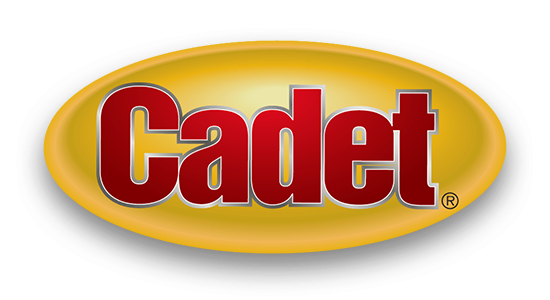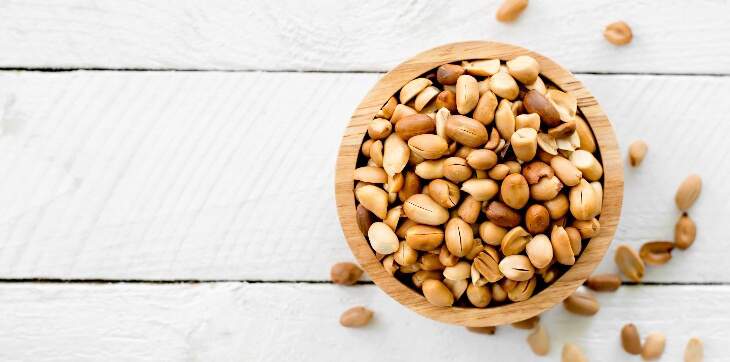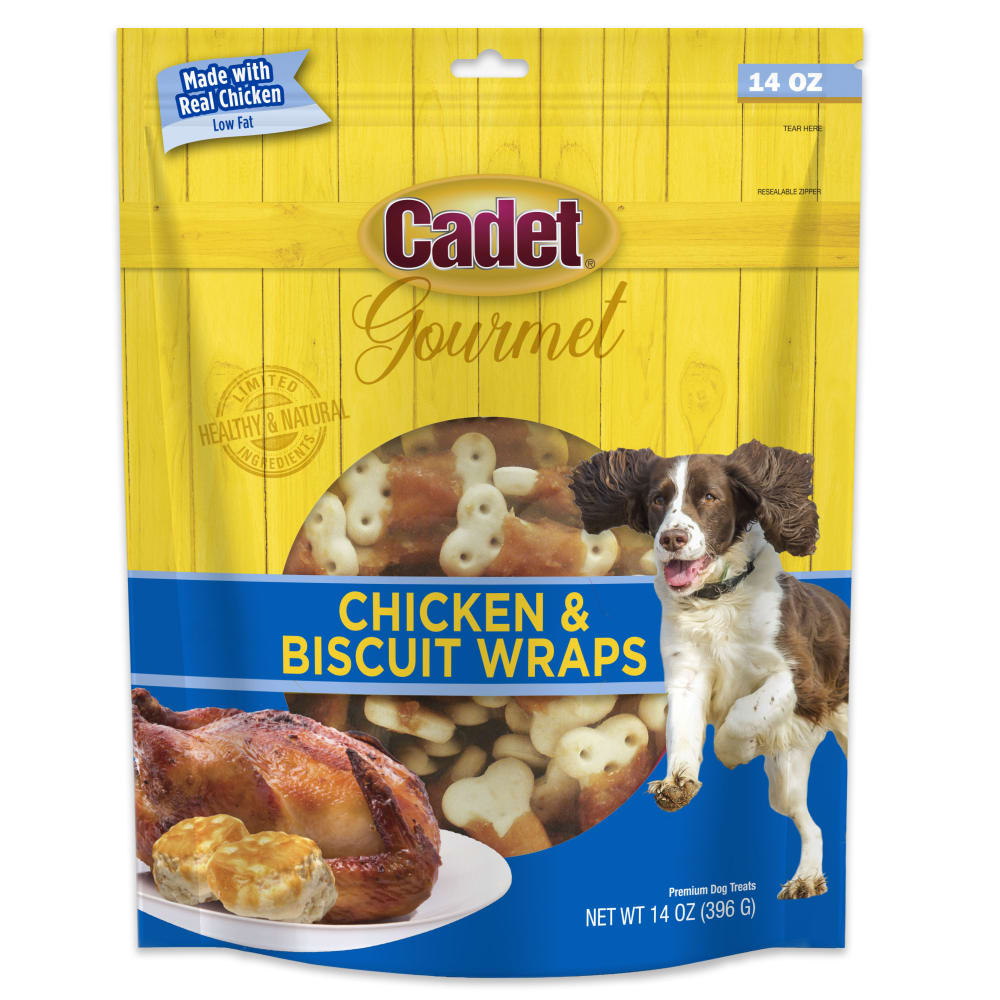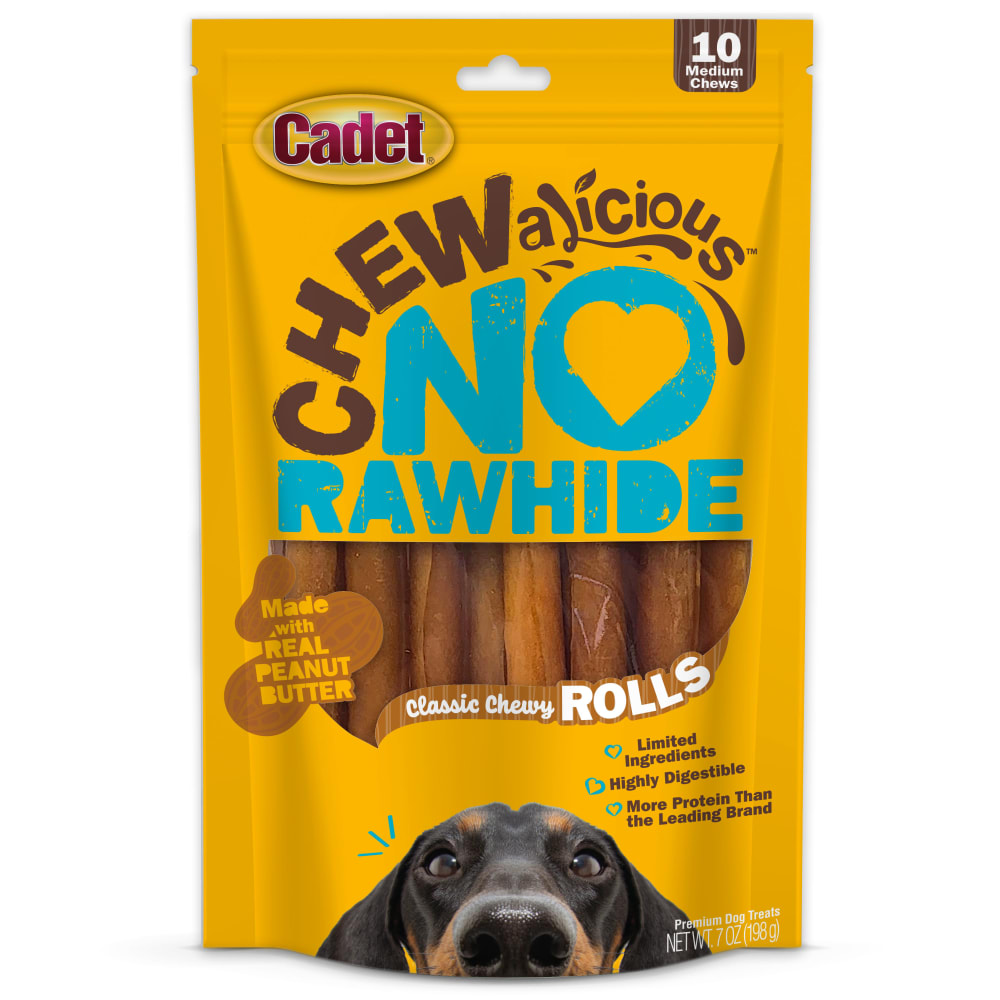Can Dogs Have Sugar? Your Guide to Sweet Treats
We aren’t the only ones with a sweet tooth! If your furry friend plops down by your side when you enjoy some dessert or a fresh piece of fruit, you might want to give them a bite. But can dogs have sugar? Here’s everything you need to know about which sweet treats you can give your Cadet, how much is too much, and how to satisfy their craving—the healthy way!
So, Can Dogs Have Sugar?
Sugar is not toxic to dogs, but it is generally unhealthy—especially in large quantities. Refined sugars (which are often found in processed foods) can lead to cavities, upset stomach, or in extreme cases, diabetes or pancreatitis. Minimize how much refined sugar, brown sugar, powdered sugar, and cane sugar your dog consumes.
Naturally occurring sugars are a better choice, but they should still be moderated. They’re found in many wholesome foods like fruits and vegetables, and it’s not unusual for furry friends to receive a bit of natural sugar in their diet.
How Much Sugar Can Dogs Have?
There’s no straightforward answer, as the appropriate amount of sugar varies based on a dog’s size and dietary needs. Large dogs can generally tolerate more sugar than small dogs, and conditions like diabetes also influence how much sugar a dog should have. Check with your veterinarian to learn how your furry friend’s size and health status should impact their diet.
Don’t be surprised if you see sugar listed as an ingredient in your dog’s treats. It’s not uncommon for small amounts of sugar to be added for flavor, but just be sure to follow the recommended feeding guidelines on the treats’ packaging. After all, too much sugar is bad for dogs.
What Are the Best Sweet Foods for Dogs?
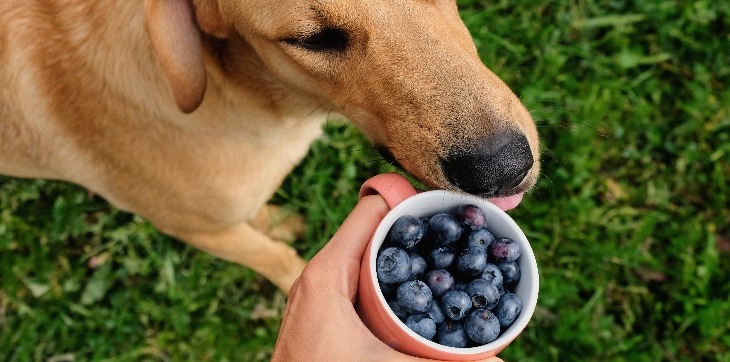
Foods with natural sugar are preferable to those with refined sugar. Opt for healthy sweet treats like:
Apples – Dogs can eat apples as long as you remove the core and seeds. Not only do most furry friends love the juicy flavor, but this fruit is also high in vitamin A, vitamin C, potassium, and antioxidants. Look for apple dog treats to give your best friend an extra-special reward!
Bell peppers – If your dog prefers a milder sweet flavor, raw or cooked bell peppers are the way to go. All color varieties contain vitamin A, vitamin E, and vitamin B6, and they are at their sweetest when ripe. Just be sure to remove the seeds and stem, as they are not easily digestible.
Blueberries – Who doesn’t love a delicious blueberry? These tart fruits contain fiber, manganese, vitamin C, and vitamin K. Blueberries are so healthy, Harvard Medical School considers them a superfood!
Peaches – Despite their super-sweet flavor, peaches are low in calories and do not contain any saturated fat. They also combine an impressive mix of nutrients, including potassium, copper, and niacin. Remove the pit before serving and avoid canned peaches, which often contain added sugar and other unhealthy ingredients.
Sweet potato – Packed with iron, calcium, zinc, and a variety of vitamins, sweet potato is great for dogs. Make sure you serve it cooked, as raw sweet potato poses a choking hazard and can lead to intestinal blockage. Whether you add a scoop to your pup’s kibble or serve them sweet potato steak fries, this root vegetable will not leave them disappointed!
🐕 Related: What Fruits Are Good for Dogs? Best & Worst Options
What Are the Worst Sweet Foods for Dogs?
Whether they’re high in sugar or contain other less-than-ideal ingredients, these foods are not good for dogs:Candy and chocolate – These snacks contain a lot of added sugar and should never be given to your dog. Chocolate contains theobromine (a compound found in cocoa beans), and many candies contain xylitol (an artificial sweetener), both of which are toxic to dogs.
Gum and mints – These products typically contain xylitol and should remain out of your dog’s grasp. Not to mention, getting chewing gum out of your dog’s coat can be a messy nightmare!
Grapes and raisins – Consuming any amount of these fruits is toxic to dogs. Grapes and raisins can lead to kidney damage, and you should contact your veterinarian immediately if your dog consumes one.
Baked goods for humans – Although dogs can eat sugar in small amounts, products like cakes, cookies, and pies contain high amounts of it and often include other unhealthy ingredients for dogs. Be especially mindful to avoid baked goods with ingredients that are toxic to canines, such as chocolate, caffeine, xylitol, and certain nuts that are unhealthy for dogs like pecans, macadamia nuts, and black walnuts. However, you can bake dog-friendly snacks or even make frozen dog treat recipes for a healthier reward!
Can Dogs Eat Sugar Substitutes?
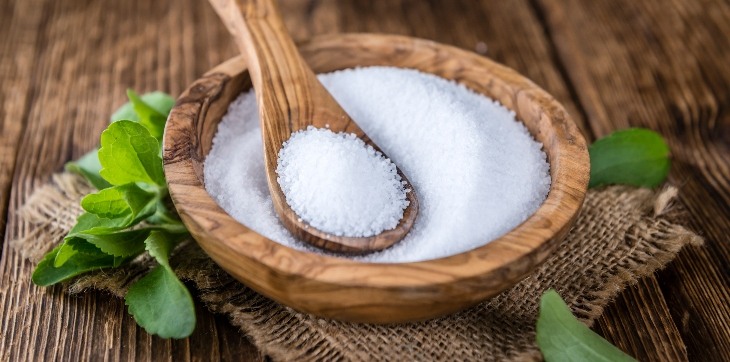
As mentioned, the artificial sweetener xylitol is toxic to dogs. While not dangerous to humans, dogs who consume this substance may experience low blood sugar—potentially leading to liver failure.
Many other sweeteners, however, do not pose dangers. The following sweeteners should be treated like sugar, as they’re best avoided when possible but are not toxic:
- Aspartame
- Erythritol
- Monk fruit
- Saccharin
- Stevia
Why Do Dogs Like Sweet Flavors?
Although dogs have about one-fifth as many taste buds as humans, they can still experience sweet, salty, sour, bitter, and savory flavors. While most Cadets prefer to avoid bitter and sour flavors, their appreciation for sweet stems from their ancestors, who ate wild fruits and veggies. The ancient craving lives on in modern dogs!Don’t Overdo It
A little bit of natural sugar is perfectly fine, but too much sugar is bad for dogs. Remember to treat in moderation if you do toss a piece of dog-friendly fruit your Cadet’s way every now and then!When it comes to nutritious treating, the options are limitless. Try these healthy human foods for dogs to enjoy!
